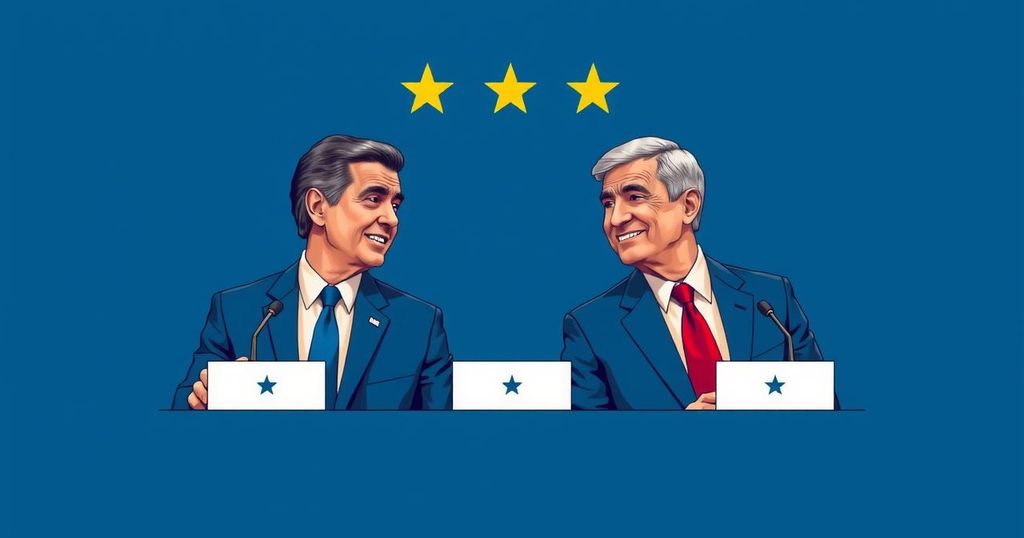The Reality of the Presidency on Election Day
As Election Day approaches, the momentous responsibilities of the presidency become clear. The incoming leader will confront immediate, pressing threats including military challenges, domestic economic issues, and effects of misinformation complicating the electoral process. The candidates’ character, resolve, and ability to navigate unforeseen crises are crucial.
As Election Day approaches, the gravity of the presidency becomes evident. Unlike the often abstract and trivial nature of campaign rhetoric, the presidency entails immediate and significant responsibilities that manifest upon taking the oath of office. In 2009, President Barack Obama faced the unprecedented weight of a potential terrorist threat as he delivered his inaugural address, emphasizing the serious nature of the position. The next elected president will assume command over thousands of nuclear arsenals and military personnel distributed across more than 150 nations. They will confront challenges posed by adversarial powers, notably Russia and China, both of whom threaten stability in global frameworks that the United States has long championed. The situation in the Middle East remains fraught with complications, as President Joe Biden has experienced. While voters are acutely aware of existing challenges such as immigration, inflation, and reproductive rights, they must also consider unresolved matters persisting from previous administrations. The rising costs in healthcare, education, and housing hinder the attainment of the American Dream. Moreover, advancements in artificial intelligence are poised to induce significant upheaval in the labor market, while the national debt and deficit could undermine economic stability. The repercussions of climate change have now reached a point of critical urgency. It is pertinent to recognize that military solutions will not suffice in addressing these domestic challenges. The next president will require foresight, persistence, and a dedication to effecting change that may not yield immediate recognition or appreciation. Ultimately, voters are not merely selecting an individual but are endorsing the values, temperament, and character that the incoming president will instill within the executive branch, which manages over a million civilian employees. The essence of the American democratic process is predicated on the belief that voters will engage in sound reasoning and select the most capable candidate to navigate the treacherous waters of unforeseen crises to come. However, the integrity of this system faces existential threats due to pervasive misinformation, particularly from figures such as Donald Trump, who has perpetuated falsehoods regarding the legitimacy of the previous election. Therefore, the first challenge for the next presidency will occur even before they are sworn in, as it pertains to how they navigate the outcome of the election, whether they emerge victorious or not.
The article addresses the complexity and weight of presidential responsibilities, particularly in relation to unforeseen challenges that future leaders will undoubtedly encounter. It highlights the contrast between campaign frivolities and the sobering realities of governance. Emphasizing historical context, it draws upon examples from the Obama era and addresses the emergence of misinformation impacting public perception and electoral integrity.
In conclusion, the upcoming election is not simply a matter of choosing a candidate; it is a critical decision that impacts not only national security and global dynamics but also domestic challenges that require a visionary leader. Voters should carefully consider the character and temperament of their chosen candidate, recognizing the profound implications of their decision.
Original Source: www.cbsnews.com




Post Comment